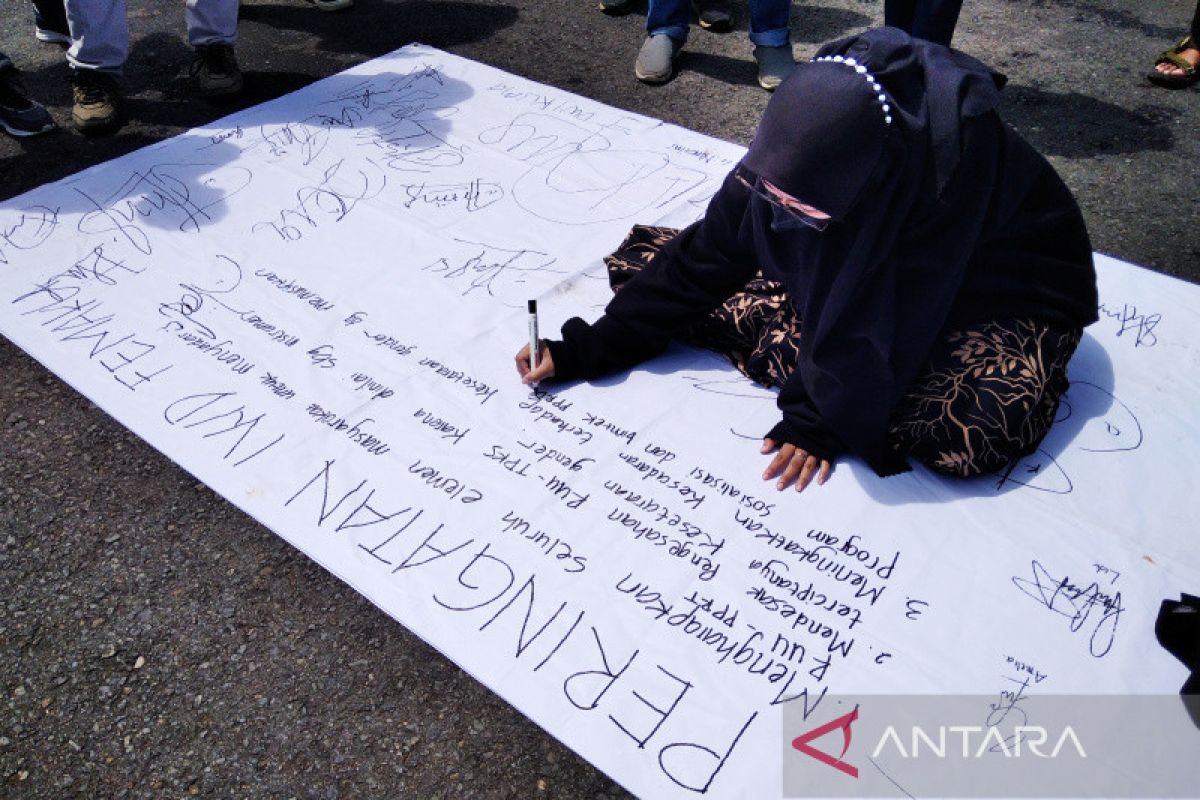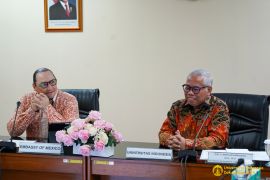Cases of sexual violence also occur in the campus environment that is supposed to be a safe place for learning.
According to survey data of the Ministry of Education, Culture, Research, and Technology (Kemenikbudristek) in 2020, around 77 percent of lecturers admitted that sexual violence occurred in their universities. Of the cases, 90 percent of the victims are women and 10 percent are men.
Moreover, 63 percent of the sexual violence cases in universities remain unreported.
Commissioner of the National Commission on Violence against Women (Komnas Perempuan) Andy Yentriyanti stated that the weak handling of sexual violence cases in the university environment had fueled the rise of increasingly greater numbers of similar cases. Yentriyanti pointed out that the Achilles’ heel in handling cases of sexual violence emerged, as the perpetrators were the closest people to the victims on campus, such as lecturers, students, or employees. Thus, victims tend to be reluctant to report.
Yetriyanti noted that the lack of reports of sexual violence on campus shows that not all educational institutions have clear, easy-to-implement, and effective rules related to the prevention and handling of sexual violence against victims, including their recovery.
Meanwhile, according to a record from the Savy Amira Women's Crisis Centre as quoted from its official website, from the findings of 34 cases of sexual violence in 2021, 19 of them occurred in the campus environment. In fact, the non-profit organization noted that the six perpetrators of those crimes are part of the campus environment.
Related news: Need to uphold public wish, ratify sexual violence bill: official
The journey of law enforcement in sexual violence cases
Supreme Court Justice Jupriyadi noted that in response to the increasing number of cases of sexual violence with each passing day, the Government and the Indonesian House of Representatives (DPR RI) had issued several regulations to strengthen the role of law enforcement officers in handling the cases.
Jupriyadi noted that because the Criminal Code (KUHP) was deemed inadequate to punish perpetrators of sexual violence, Law Number 23 of 2002 concerning Child Protection was then promulgated, which was later amended by Law Number 35 of 2014, again amended by Government Regulation in Lieu of Law No. 1 of 2016, and the last one was changed to Law No. 17 of 2016.
There is also Law Number 23 of 2004 concerning the Elimination of Domestic Violence (PKDRT) and Law Number 21 of 2007 concerning the Eradication of Human Trafficking (TPPO).
Nevertheless, Jupriyadi stated that law enforcement in cases of sexual violence had not been maximally felt by the public and fueled the demand that the government and the DPR RI must immediately ratify the Sexual Violence Bill (RUU TPKS) into law. The regulation is viewed by several groups, ranging from academics, activists, and several parties from the government, to be able to maximize law enforcement against cases of sexual violence.
According to the Assistant Deputy for Fulfillment of Women's Rights, Protection and Empowerment at the Coordinating Ministry for Human Development and Culture (Kemenko PMK) Roos Diana Iskandar, the problem of sexual violence hinders the development of Indonesia and its human resources. She highlighted that anyone could fall victim to sexual violence, be it women, men, children, or adults.
Related news: Sexual violence prevention bill to establish new norms: Legislator
Iskandar assessed that the current regulations are not sufficient to prevent and deal with cases of sexual violence that are increasing.
Regulation for campus sexual violence
As part of the efforts to prevent and handle cases of sexual violence in universities, the issuance of Regulation of the Minister of Education, Culture, Research, and Technology (Permendikbudristek) Number 30 of 2021 on the Prevention and Handling of Sexual Violence in Higher Education has offered a new ray of hope.
The community positively welcomed the regulation, as it is deemed capable of broadening the definition of sexual violence.
Deputy Coordinator of the Volunteer Advocate at the Foundation for Legal Aid and Family Affairs of the Indonesian Women's Congress (YLBH-MK Kowani), Indriati, assessed that Permendikbudristek Number 30 of 2021 supported the recovery of victims of sexual violence.
Even so, Minister of Education, Culture, Research, and Technology, Nadiem Makarim, noted that the sexual violence bill (RUU TPKS) will later become a legal reference for Permendikbudristek Number 30 of 2021. In other words, the minister assessed that prevention and handling of sexual violence cases require a solid legal basis, and it can be realized through the ratification of the RUU TPKS.
Related news: Minister expresses regret over sexual violence case in Tarakan
The urgent need for sexual violence bill ratification
Roos Diana Iskandar highlighted several reasons behind the need to ratify RUU TPKS. First, the KUHP still has limitations in regulating actions against cases of sexual violence.
Meanwhile, in RUU TPKS, sexual violence is classified in more detail, including several categories, with a broader definition, and is believed to be more capable of punishing the perpetrators. The categories included in the bill are: forced use of contraceptives, forced sexual intercourse, sexual exploitation, and criminal acts of sexual violence accompanied by other criminal acts.
Second, she noted that RUU TPKS could provide better protection to the victims of sexual violence, their families, and witnesses. In fact, Iskandar noted that RUU TPKS regulates that perpetrators of sexual violence will be rehabilitated, so that they will not repeat the act.
The urgency for RUU TPKS to be ratified has also been voiced by Deputy Minister for Law and Human Rights Edward Omar Sharif Hiariej.
Hiariej drew attention to four important points in RUU TPKS that are effective in eradicating sexual violence.
First, law enforcement officers are not allowed to reject reports relating to cases of sexual violence. Thus, they are required to process all cases related to sexual violence.
Second, in resolving sexual violence cases, the restorative justice approach can never be employed.
Third, law enforcement officers will be facilitated in processing cases of alleged sexual violence because one witness and other evidence are deemed to be sufficient to process cases of sexual violence. Moreover, for rape victims, who generally do not have other witnesses, the results of visum et repertum can be used as evidence.
Finally, RUU TPKS requires that restitution be charged to perpetrators of sexual violence at an amount decided by the panel of judges handling the case.
In short, the role of RUU TPKS in eradicating sexual violence in Indonesia is undeniably prominent. To this end, hopes are pinned high on the House of Representatives and the Government shortly ratifying the bill.
Related news: Indonesia strikes US$150 million worth deals with Japanese businessmen
Related news: Forced Marriage Article must cover lack of consent: ICJR
Translator: Tri Meilani, Raka Adji
Editor: Fardah Assegaf
Copyright © ANTARA 2022












